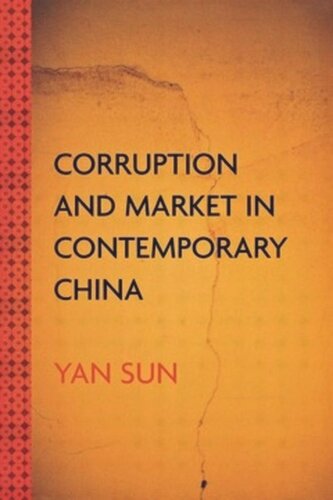

Most ebook files are in PDF format, so you can easily read them using various software such as Foxit Reader or directly on the Google Chrome browser.
Some ebook files are released by publishers in other formats such as .awz, .mobi, .epub, .fb2, etc. You may need to install specific software to read these formats on mobile/PC, such as Calibre.
Please read the tutorial at this link: https://ebookbell.com/faq
We offer FREE conversion to the popular formats you request; however, this may take some time. Therefore, right after payment, please email us, and we will try to provide the service as quickly as possible.
For some exceptional file formats or broken links (if any), please refrain from opening any disputes. Instead, email us first, and we will try to assist within a maximum of 6 hours.
EbookBell Team

4.3
38 reviewsIs corruption an inevitable part of the transition to a free-market economy? Yan Sun here examines the ways in which market reforms in the People's Republic of China have shaped corruption since 1978 and how corruption has in turn shaped those reforms. She suggests that recent corruption is largely a byproduct of post-Mao reforms, spurred by the economic incentives and structural opportunities in the emerging marketplace. Sun finds that the steady retreat of the state has both increased mechanisms for cadre misconduct and reduced disincentives against it.
Chinese disciplinary offices, law enforcement agencies, and legal professionals compile and publish annual casebooks of economic crimes. The cases, processed in the Chinese penal system, represent offenders from party-state agencies at central and local levels as well as state firms of varying sizes and types of ownership. Sun uses these casebooks to illuminate the extent and forms of corruption in the People's Republic of China. Unintended and informal mechanisms arising from corruption may, she finds, take on a life of their own and undermine the central state's ability to implement its developmental policies, discipline its staff, enforce its regulatory infrastructure, and fundamentally transform the economy.